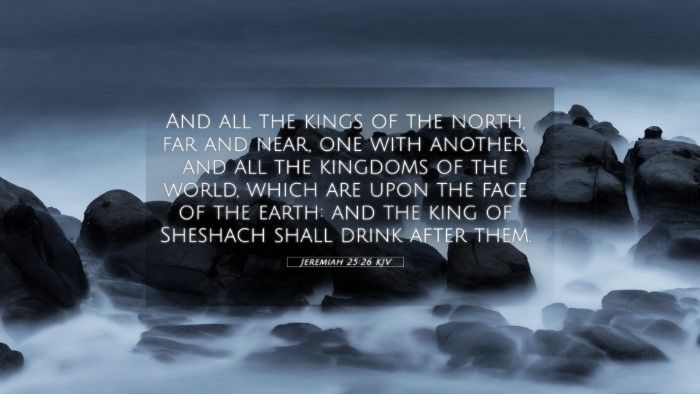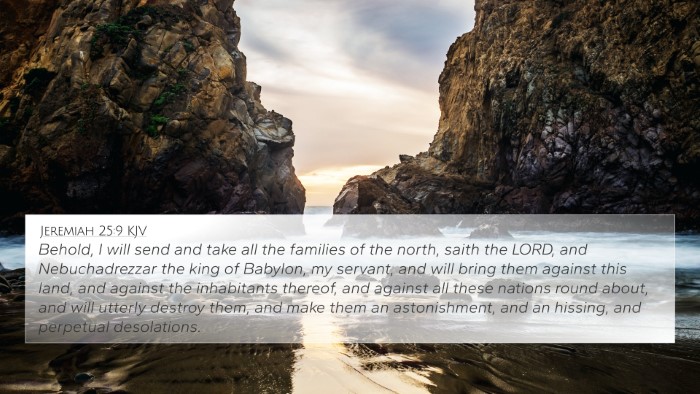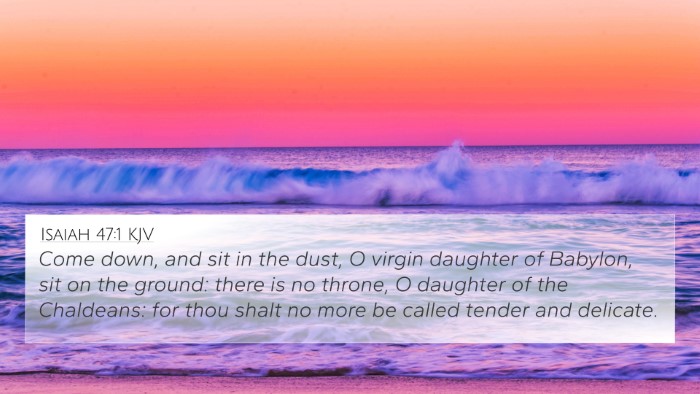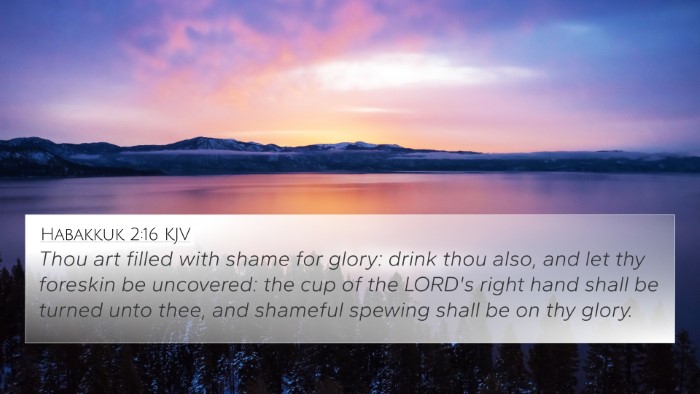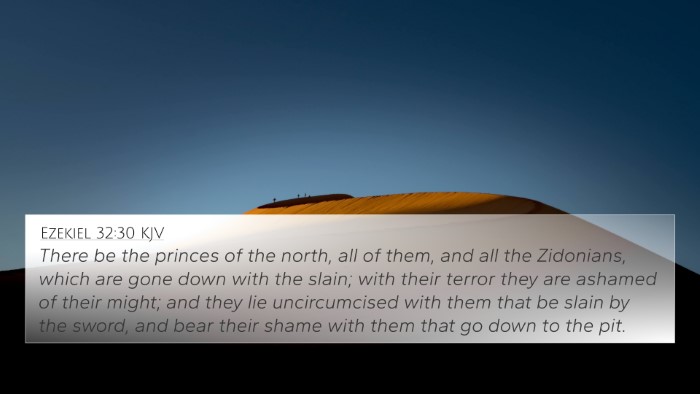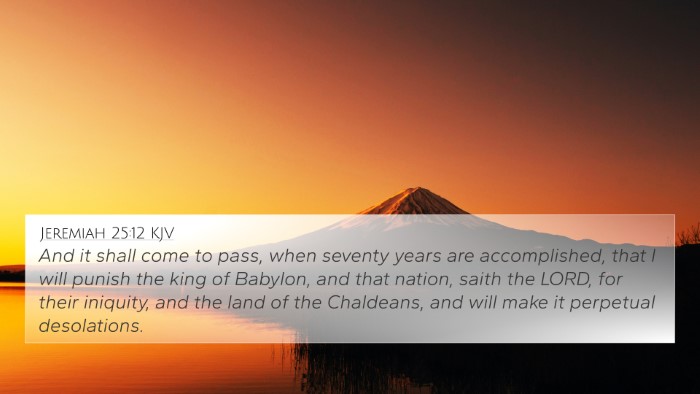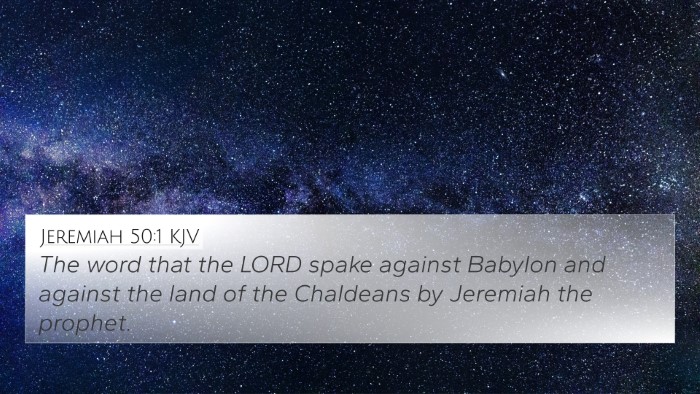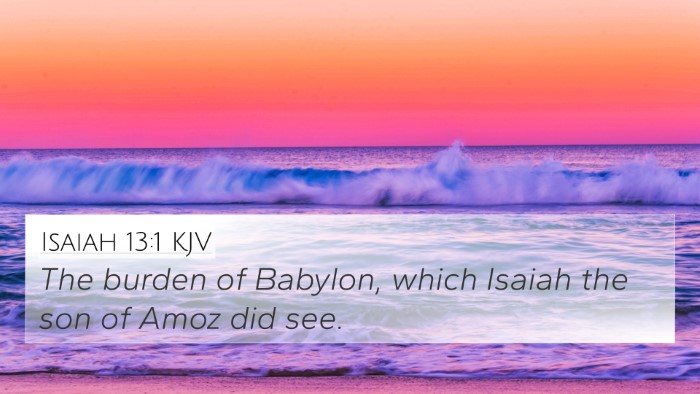Understanding Jeremiah 25:26
Jeremiah 25:26 is a powerful proclamation regarding the fate of nations and their leaders, emphasizing God's sovereignty over all the earth. This verse, part of a larger discourse in the Book of Jeremiah, reveals the judgment of God upon various kingdoms, illustrating the theme of divine authority in determining the course of history.
Verse Context
In the previous verses, the prophet Jeremiah speaks of God’s impending judgment upon Judah and surrounding nations. This specific verse serves as a summary of God’s dominion, stating that all nations under heaven will be judged through Babylon.
- Text of Jeremiah 25:26: "And all the kings of the north, near and far, all the kingdoms on the face of the earth will drink the wine of God's wrath." (NIV)
- Theme: The verse emphasizes God’s control over all earthly powers.
Commentary Insights
Insights from Matthew Henry
Matthew Henry discusses the concept of God's wrath symbolized through the metaphor of wine. He interprets the act of nations "drinking" as experiencing the weight of divine judgment, suggesting that this is an inescapable aspect of God’s justice that all nations must face. He also points out that the mention of "kings of the north" illustrates the geographical and political scope of God’s sovereignty.
Insights from Albert Barnes
Albert Barnes elaborates on the universality of God's authority. He notes that the "kings of the north" refers not only to the immediate enemies of Judah but also to all powers that oppose God's will. Barnes indicates that this verse shows the ultimate futility of human power against God's plan and highlights the inevitability of divine judgment upon all nations.
Insights from Adam Clarke
Adam Clarke emphasizes the prophetic nature of this judgment. He notes that the verse serves to warn that no nation is exempt from God's scrutiny and accountability. Clarke also provides historical context by linking the prophecy to specific historical events following Jeremiah's time, indicating that God's judgment was fulfilled through the Babylonian exile.
Thematic Connections and Cross-References
This verse is deeply intertwined with several biblical themes, including divine sovereignty, judgment, and the consequences of idolatry. Below are cross-references that further illuminate the meaning of Jeremiah 25:26:
- Isaiah 13:1-5: Prophecies of judgment against nations, echoing the theme of divine intervention.
- Daniel 2:21: God’s dominion over kingdoms, underlining His control over earthly rulers.
- Revelation 16:19: The pouring out of God’s wrath, symbolizing the ultimate judgment upon nations.
- Jeremiah 1:10: The appointed authority over nations as God's instrument of both judgment and restoration.
- Psalm 75:7: God is the judge who puts down one ruler and raises up another.
- Acts 4:26-27: The gathering of the rulers against the Lord, showing the opposition of earthly authority to divine will.
- Matthew 28:18: Christ’s declaration of authority over heaven and earth, linking New Testament insights with Old Testament themes.
Practical Applications
This verse reinforces the importance of recognizing God's authority in our lives. Believers can draw several applications:
- God’s Sovereignty: Trust in God’s control over world affairs and personal circumstances.
- Accountability: Understanding that leaders and nations will face divine judgment serves as a call for righteousness.
- Hope amidst Judgment: Just as judgment was pronounced, God also offers restoration and hope, a recurring theme through the prophetic books.
Conclusion
Jeremiah 25:26 serves as a profound reminder of God's overarching authority and the eventual reckoning for nations. By examining this verse through various commentaries and integrating cross-references, we gain a deeper understanding of the interconnectedness of scripture and the enduring relevance of God's word. The lessons drawn from this verse continue to resonate today, encouraging believers to reflect upon their relationship with God amidst the complexities of life.

